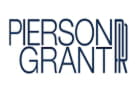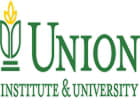
Kristine Yoder, PhD
The Campbell Foundation, a nonprofit organization dedicated to funding HIV/AIDS research, has awarded an $80,000 grant to Kristine Yoder, PhD, to develop a CRISPR-based gene editing platform designed to eradicate HIV.CRISPR stands for Clustered Regularly Interspaced Short Palindromic Repeats. It is a novel genome editing technology that targets a tiny section of DNA and cuts it at a precise point.
Yoder, an assistant professor of Cancer Biology and Genetics at The Ohio State University College of Medicine,is developing the use of CRISPR to disable the HIV-1 provirus, that is, copies of the HIV-1 genomethat latently reside in the DNA of infected host immune cells.
“CRISPR is a genome editing technique that damages DNA at sequence specific sites. The most recently described and versatile genome editing system is called CRISPR/Cas9,” said Yoder. “Our specific aim is to develop a CRISPR/Cas9 gene therapy that introduces site specific mutations which fundamentally incapacitate the integrated HIV-1 provirus in lymph node tissues.”
Although anti-retroviral therapy can reduce the amount of HIV virus in a person’s body,it cannot eliminate the virus. Copies of HIV invariably persist in long-lived T-cells and other immune cells, resulting in hidden reservoirs that can renew the infection.
“HIV latency is akin to a ticking time bomb and continues to prevent a cure for HIV. Genome editing is a powerful new tool that could inactivate the latent provirus (an integrated copy of the viral DNA in the human genome),” said The Campbell Foundation’s Executive Director Ken Rapkin. “New technologies to target and destroyinactivate latent HIV reservoirs are key to eradication and cure.”
About The Campbell Foundation
The Campbell Foundation was established in 1995 by the late Richard Campbell Zahn as a private, independent, nonprofit organization dedicated to supporting clinical, laboratory-based research into the prevention and treatment of HIV/AIDS. It focuses its funding on supporting alternative, nontraditional avenues of research. In its 22nd year, the Campbell Foundation has given away $10.7 million dollars, with about $1.2 million going to direct services.
About The Ohio State University College of Medicine
The Ohio State University College of Medicine, founded in 1914, is well known for its curricular innovation, world-renowned faculty, pioneering research and patient care. It is consistently ranked by U.S. News & World Report as one of the best public medical schools in the United States. Each year, nearly 700 residents and fellows train in more than 65 accredited graduate and residency programs. More than 13,700 College of Medicine MD and residency program graduates practice in all 50 states and in more than 50 countries around the world.



















